

L-R: Bowel Cancer NZ medical advisor Professor Sue Crengle, Tai Runga Takiwaa Māori Ward Councillor Tilly Turner, and Dr Rawiri McKree Jansen express concern over the sudden decision to end bowel cancer screening for Māori and Pasifika communities aged 50 to 60.
Photo / RNZ / Bowel Cancer NZ / Waikato District Council / Supplied
Govt ends pilot programme for Māori and Pacific, sparking outrage
The coalition’s decision to terminate bowel cancer screening has drawn sharp criticism from health advocates and survivors.


Pacific pride on the big stage: ‘Chief of War’ wins Best Ensemble at the Spirit Awards




Pacific pride on the big stage: ‘Chief of War’ wins Best Ensemble at the Spirit Awards


Pacific and Māori leaders say there is a need for community-driven health campaigns to address growing inequities in bowel cancer diagnosis and survival.
Earlier this month, the Government announced the end of a pilot programme that allowed Māori and Pacific people to access bowel cancer screening starting at from age 50, effective 5 December.
Health organisations were informed of this decision, which the Māori Cancer Leadership Network condemned as shocking, citing the disproportionate high bowel cancer death rates among Māori and Pacific communities.
However, Tilly Turner, a Māori ward councillor, found the news unsurprising.
"Who's the first one [that] they cut? Us. They're cutting back on all of these things to do with Māori development or Pasifika… so I'm not at all surprised. It's just going to be: keep cutting."
Turner, the Tai Runga Takiwaa Māori Ward Councillor for the Waikato District Council, shares her concerns.
As a bowel cancer survivor, she describes how early detection saved her life after she experienced a blackout during a flight that led to her diagnosis in 2013.
"I had no idea that that’s what was going on in my body. If I didn’t fly, they would not have known. I just blacked out on the plane, and it happened to be that I had bowel cancer,” she says.
“They found it fairly quickly, at a stage where I had to have quite a bit of my intestines cut out. And closer to the bowel. So they took that out and stitched me up, and I’ve been good since.”
Turner encourages everyone to get tested. "What we need to do is just make sure that we get out, you know, if you belong to a Hauora of sorts, that you get yourself those tests done, you know?
“Now, because before that education, we didn’t even know how to test. I had no idea that that’s the way that you could test. And I didn’t even know that I was suffering from it until after I was blacking out , and it was just a by chance."
Turner had no symptoms. “There was nothing else other than from a child. I have alway experienced quite a bit of constipation throughout my lifetime.
“But that was my norm. And so that was just the way it was with me. And so, nothing different. I didn't see any blood in my faeces or anything, you know, anything like that.
“It was just went up on a plane, blacked out on a plane and got a little bit. I don't know what that was all about.”
She says bowel cancer is not often discussed, but as a survivor, she feels it’s her responsibility to urge her family to get tested.
"Because I’m a survivor, I see it as my responsibility to make sure my daughters, my family, and my community get tested by a certain age."
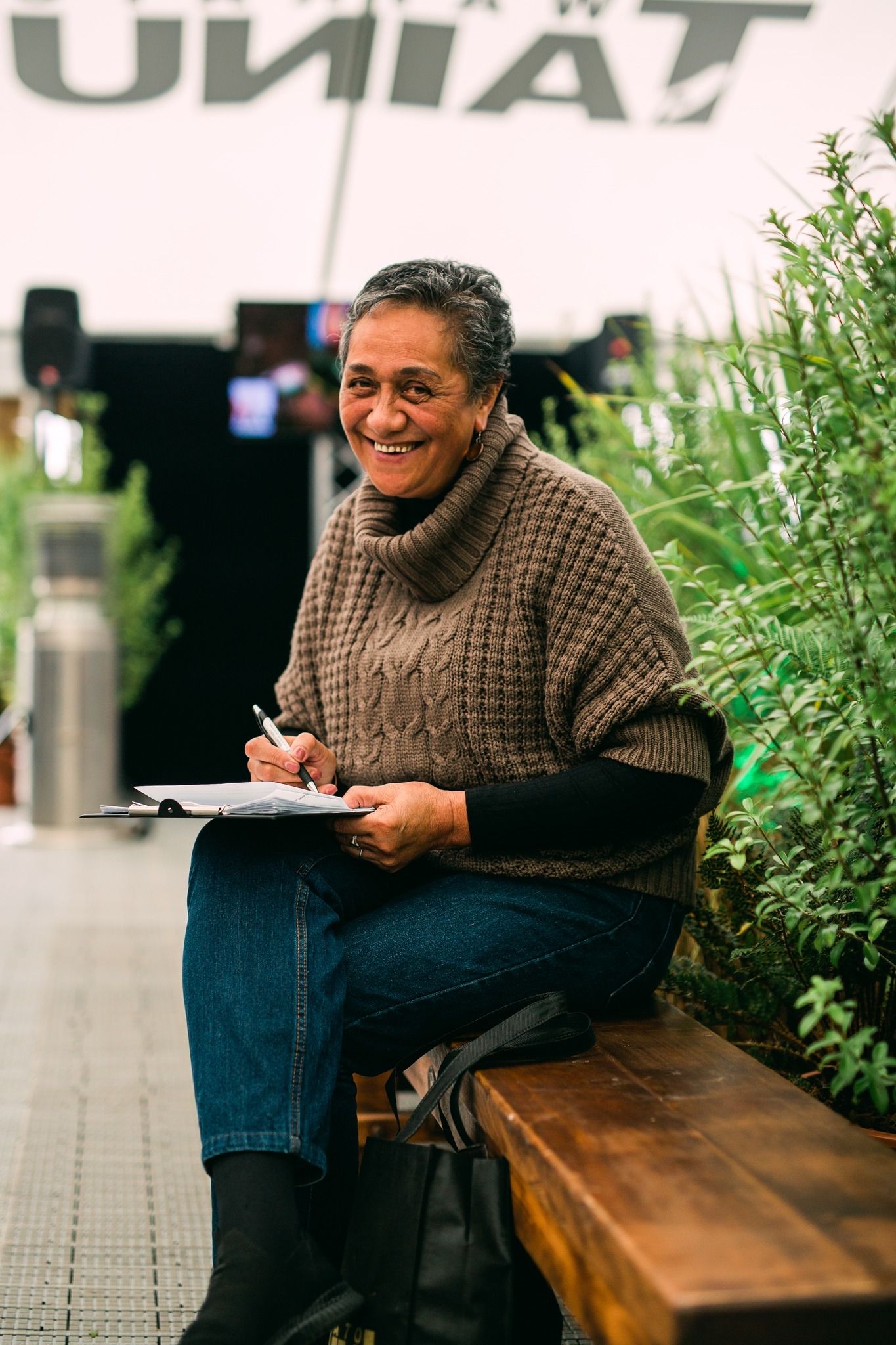
Tilly Turner, a bowel cancer survivor, stresses the importance of early testing and making it part of regular health checks. Photo / Facebook
Despite the programme being cancelled, she remains determined. “It comes down to each local hauora in each region to ensure a campaign. If the government won’t do it, we have to.”
Turner stresses the importance of community action. "We’ve been educated enough to know how important this is. If we want to keep our families safe, this has to be part of our conversations."
Hei Āhuru Mōwai, a national organisation focused on improving cancer care for Māori, described the Government’s decision as poorly informed and devastating for whānau.
The 50+ screening pilot in Waikato diagnosed six people with cancer and led to the removal of numerous precancerous polyps.
Without the pilot, screening would not have started until age 60, leaving these cancers undetected and reducing survival chances.
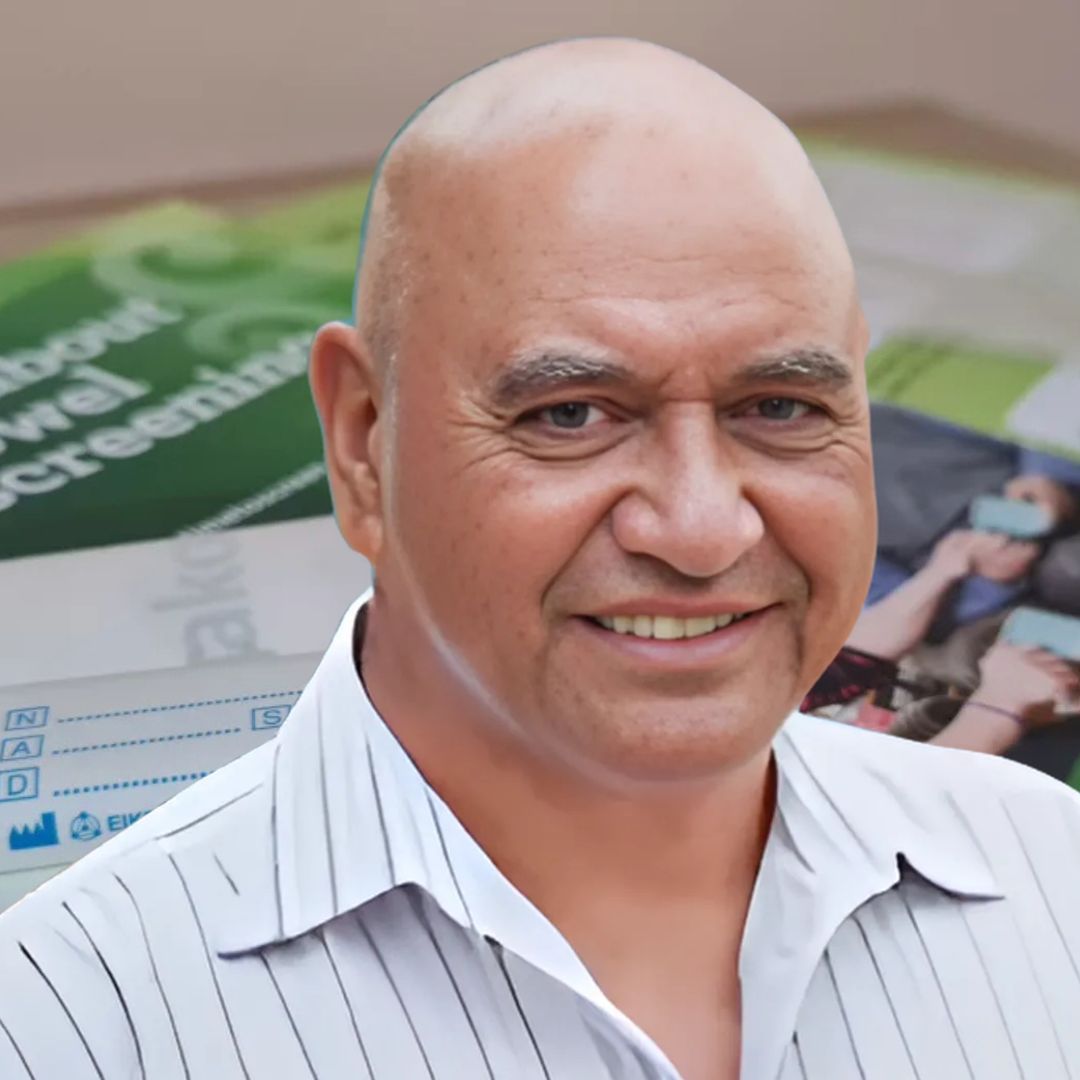
Hei Āhuru Mōwai CEO Gary Thompson says the government's decision to axe the bowel screening programme will harm Māori and Pacific peoples, worsening the 7–8-year life expectancy gap. Photo / Ministry of Pacific Peoples / Hei Āhuru Mōwai
Gary Thompson, CEO of Hei Āhuru Mōwai, is calling for a pause on the decision, citing its conflict with current medical evidence and the lack of notice, which left no time to assess its impact or inform providers and whānau.
"Returning to the 60-year age limit for Māori and Pacific peoples means that the bowel screening programme will increase inequities in bowel cancer incidence, survival and death rates between Māori and non-Māori," he warns.
"It will harm Māori and Pacific peoples and worsen the 7–8-year life expectancy gap."
Dr. Rawiri McKree Jansen explains that most Māori diagnosed with bowel cancer are under the age of 60, compared to just under a third of non-Māori.
"Bowel screening detects small, potentially curable cancers and prevents cancer by removing precancerous polyps.
“Both Māori and non-Māori have a similar chance of getting bowel cancer, but over half of Māori who get bowel cancer are diagnosed before the age of 60 years (58 per cent in females and 52 per cent in males).
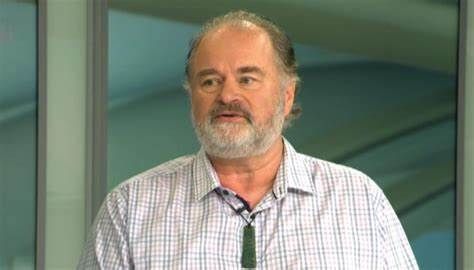
Dr Rawiri McKree Jansen says most Māori diagnosed with bowel cancer are under 60, before the bowel screening programme begins. Photo / Supplied
“This is compared to just under a third for non-Māori (27 per cent in females and 29 per cent in males).
“For non-Māori, three-quarters of people are diagnosed over the age of 60. Keeping bowel screening available to Māori and Pacific peoples from age 50 would make the national bowel screening programme fair."
Additionally, Māori bowel cancer rates are on the rise, while non-Māori rates are decreasing.
Peter Huskinson, CEO of Bowel Cancer NZ, expressed his disbelief at the abrupt cancellation of the programme, especially without a formal statement in the House.
"This decision will mean unnecessary suffering and deaths among Māori and Pacific communities - deaths that could have been prevented with proper screening at the right age," he says.
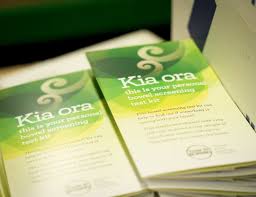
Tilly Turner urges using pamphlets to educate ourselves and our community, and to stay proactive with testing. Photo / Bowel Cancer NZ
Professor Sue Crengle, a medical advisor for Bowel Cancer NZ, says, "More Māori and Pasifika bowel cancer is diagnosed before age 60 years.
“As a result, these groups had less opportunity to benefit from bowel cancer screening than other ethnic groups.
“Starting screening for Māori and Pasifika people at age 50 years meant that the benefit from the programme was equal across all ethnic groups. It would be incredibly disappointing if this has been stopped."
Turner stresses the importance of empowerment and community action.
"We can’t do anything about what the government is doing, but it’s up to us to be responsible for our health. Make it an annual thing as part of your hauora check."
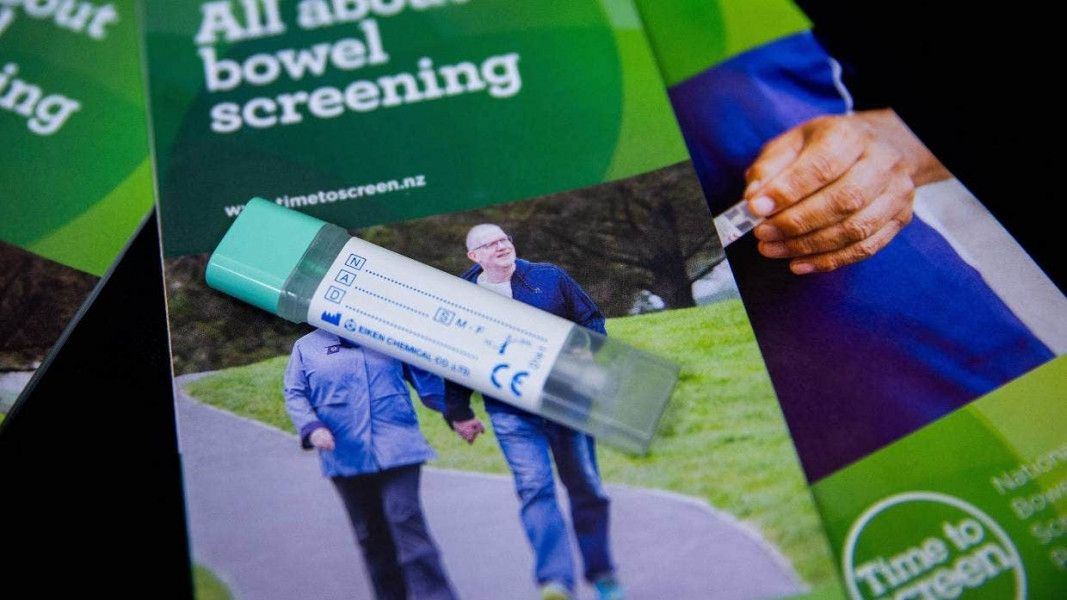
“Far too many Māori and Pasifika are dying that could have a fighting chance if they were screened from 50,” says Bowel Cancer NZ medical advisor, Professor Sue Crengle. Photo / Ministry of Pacific Peoples
Hei Āhuru Mōwai recommends that bowel screening starts at age 50 for Māori and Pacific peoples.
RNZ reported last week that Prime Minister Christopher Luxon refused to commit to lowering the age for bowel screening in the current term.
Te Whatu Ora was approached for comment.
LDR is local body journalism co-funded by RNZ and NZ On Air.
